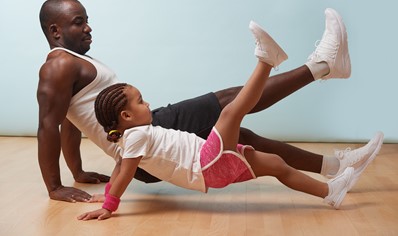
Is your child excited about the start of a new school year—or are they nervous?
They may be feeling a little of both.
Whether they are preschoolers leaving home for the first time or preteens facing a change of teachers or schools, children of all ages may struggle with back-to-school “jitters.”
Here’s how you can help to ease their way into a new school year.
Talk about their feelings
Small children can have big fears about school.
They may be afraid of meeting new teachers and strange children. They may feel panicky when they imagine being away from you.
Most young learners have favorite and not-so-favorite subjects. Reading, writing, math, gym class—your child might be worried about doing well in these subjects.
When they can talk about their fears, the feelings become less overwhelming and upsetting.
Use open-ended questions to encourage them to open up. Open-ended questions are those that cannot be answered with “yes” or “no.”
Examples to try:
- What do you know about your new teacher?
- What are you looking forward to this year?
- What things about school worry you?
- How can I help you with that?
Visit the school in advance
Many people are uncomfortable with the unknown. If your child is starting the year at a new school, they may worry about getting lost in the halls or going to the wrong classroom.
Consider a trip to the school before the first day. If you have permission, go inside, walk the halls, and find your child’s classroom.
You can also look up the school website online. Look at photos together of inside and outside the school building.
Tell stories about your own school days. Be positive about friends, helpful teachers, and fun activities you remember. Your child is watching and listening.
Involve children in school-related decisions
When children feel some control over their environment, it helps them to control their emotions.
Most children cannot choose to skip school. However, they can make some choices about what clothes to wear, what food to take in their lunch, and the color of their notebooks.
Let them participate whenever you can. Choose your battles!
Watch for signs of stress and anxiety
Your child may not speak about back-to-school jitters, but they may have symptoms that show they are feeling stress.
Signs of worry and anxiety could include:
- Changes in sleep, such as nightmares
- Eating more or less than usual
- Clingy behavior
- Mood swings and meltdowns
- Stomachaches
- Headaches
Be sure to call your child’s doctor if you notice symptoms that concern you.
Need help for depression, anxiety, or other concerns?
Carelon Behavioral Health is here to help you with behavioral health treatment for:
- Depression
- Anxiety
- ADHD
- Alcohol and drug abuse
You do not need approval for individual, family, or group therapy. Also, you do not need a referral from your regular doctor.
English/Spanish interpreter services available 24 hours a day, 7 days a week.
HEALTHfirst STAR Medicaid: 1-800-945-4644
KIDSfirst CHIP: 1-800-945-4644
KIDSfirst CHIP Perinate: 1-888-814-2352



